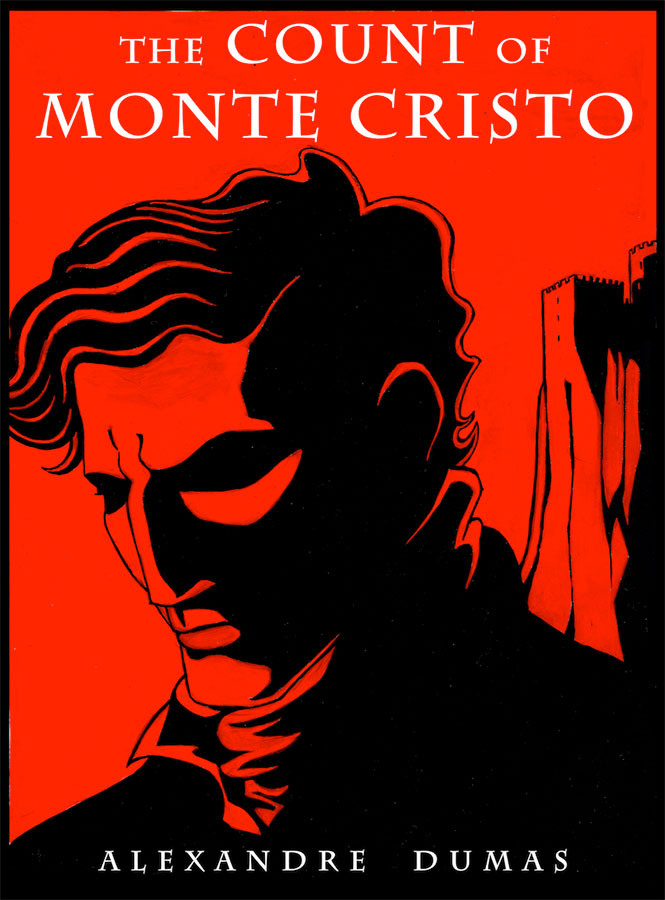A Timeless Swashbuckler: Reviewing Alexandre Dumas' The Count Of Monte Cristo

Table of Contents
A Thrilling Tale of Revenge and Justice
The narrative of The Count of Monte Cristo hinges on the devastating injustice suffered by Edmond Dantes. His wrongful imprisonment, fueled by betrayal and conspiracy, forms the heart-wrenching crux of the story.
Edmond Dantes' Unjust Imprisonment
Edmond, a young and promising sailor, falls victim to a web of deceit spun by envious rivals. The keywords here are betrayal, conspiracy, and false accusation.
- Conspirators and Motivations: Fernand Mondego, driven by jealousy over Edmond's engagement to Mercédès; Danglars, fueled by greed and ambition; and Villefort, motivated by protecting his own reputation and career, all conspire to ruin Edmond.
- The Chateau d'If: The harsh conditions of the Chateau d'If prison, a symbol of injustice and despair, break Edmond's spirit initially, yet ironically forge his resilience. The years of confinement shape his character, transforming him into a calculated and formidable individual.
- Abbé Faria's Mentorship: The fortuitous meeting with Abbé Faria, a fellow prisoner and scholar, proves pivotal. Faria's guidance and knowledge equip Edmond with the intellectual and practical tools for his future plans.
The Count's Elaborate Revenge
Edmond's escape and transformation into the enigmatic Count of Monte Cristo mark the commencement of his meticulously planned revenge. This is where the terms revenge plot, mastermind, and scheming come into play.
- Acquisition of Wealth and Power: Edmond's discovery of the treasure on Monte Cristo island provides him with the means to execute his intricate scheme. His wealth and influence allow him to manipulate events from the shadows.
- Revenge Against His Enemies: The Count systematically targets Fernand Mondego, Danglars, and Villefort, exposing their crimes and orchestrating their downfall. His methods, while often brutal, are carefully calculated to deliver a fitting punishment for their treachery.
- Moral Ambiguity: Dumas masterfully portrays the moral complexities of revenge. While the reader sympathizes with Edmond's suffering, the Count's actions raise questions about justice, morality, and the destructive nature of vengeance.
Exploring Themes of Betrayal, Justice, and Redemption
Beyond the thrilling adventure, The Count of Monte Cristo explores profound themes that continue to resonate with readers.
The Power of Betrayal
Betrayal forms the cornerstone of the novel, impacting every character and shaping the narrative's trajectory. The keywords here are betrayal, trust, friendship, and loyalty.
- Types of Betrayal: The novel portrays various forms of betrayal—romantic betrayal, betrayal of friendship, and betrayal of trust.
- Psychological Impact: The consequences of betrayal are far-reaching, inflicting lasting emotional and psychological damage on the characters.
- Driving the Plot: Betrayal acts as the primary catalyst, igniting the chain of events that drive the plot forward.
The Pursuit of Justice
The novel meticulously examines the nature of justice, highlighting the discrepancies between legal justice and personal vengeance. This section employs keywords like justice, revenge, law, and morality.
- Flaws in the Legal System: Dumas critiques the inadequacies and potential for corruption within the French legal system, showcasing how Edmond's initial trial fails to deliver true justice.
- The Count's Methods: The Count's methods of achieving justice often blur the lines between retribution and vigilantism, challenging the reader's perception of morality.
- Legal vs. Personal Revenge: The novel juxtaposes the formal processes of law with the brutal efficiency of personal revenge, forcing the reader to consider the complexities of both.
Redemption and Forgiveness
Despite the focus on revenge, The Count of Monte Cristo also explores the possibility of redemption and forgiveness. The keywords here are redemption, forgiveness, mercy, and second chances.
- Beyond Revenge: Edmond's ultimate goals extend beyond mere retribution. He seeks to restore balance and reclaim what was unjustly taken from him.
- Potential for Reconciliation: While complete reconciliation isn't always achieved, the novel suggests the potential for forgiveness and understanding, even in the face of profound betrayal.
- Personal Peace: Forgiveness, both given and received, plays a critical role in the characters' journey towards personal peace and closure.
The Enduring Legacy of The Count of Monte Cristo
The novel’s impact extends far beyond the pages of the book itself.
Adaptations and Cultural Impact
The Count of Monte Cristo has captivated audiences across various media. This section incorporates keywords like film adaptations, television series, stage adaptations, and cultural impact.
- Notable Adaptations: Numerous film and television adaptations, spanning decades, attest to the novel's enduring appeal.
- Influence on Other Works: The story's themes and plot structure have influenced countless works of fiction, showcasing its lasting impact on literature and popular culture.
- Continued Relevance: The novel's exploration of timeless themes ensures its continued relevance and popularity among modern audiences.
Why It Remains a Classic
The Count of Monte Cristo remains a timeless classic due to several key elements. Here, we use keywords like classic literature, adventure story, revenge, and timeless.
- Thrilling Plot: The suspenseful narrative keeps readers engaged from beginning to end, propelled by twists, turns, and unexpected revelations.
- Complex Characters: Dumas creates richly developed characters, each with their own motivations and flaws, making them relatable and believable.
- Universal Themes: The novel explores universal themes of betrayal, revenge, justice, and redemption, making it relevant across cultures and generations.
Conclusion: A Timeless Masterpiece: The Enduring Appeal of The Count of Monte Cristo
This review has highlighted The Count of Monte Cristo's compelling plot, complex characters, and exploration of timeless themes. From Edmond Dantes' unjust imprisonment to his meticulously planned revenge, the novel offers a thrilling and thought-provoking journey. The exploration of betrayal, justice, and redemption adds depth and complexity, making it more than just an adventure story. Ultimately, The Count of Monte Cristo remains a literary masterpiece, deserving of its enduring place in classic literature. Experience the thrilling adventure of The Count of Monte Cristo for yourself! Discover the timeless appeal of this swashbuckling tale and delve into the world of Alexandre Dumas.

Featured Posts
-
 Final Destination 5 Box Office 30 Million Debut Predicted
May 04, 2025
Final Destination 5 Box Office 30 Million Debut Predicted
May 04, 2025 -
 Ufc Fight Night A Comprehensive Guide To Sandhagen Vs Figueiredo
May 04, 2025
Ufc Fight Night A Comprehensive Guide To Sandhagen Vs Figueiredo
May 04, 2025 -
 Gibonni Intimno Predstavljanje Knjige Drvo I Najava Koncerta U Subotici
May 04, 2025
Gibonni Intimno Predstavljanje Knjige Drvo I Najava Koncerta U Subotici
May 04, 2025 -
 Is Darjeeling Teas Future At Risk A Look At Current Challenges
May 04, 2025
Is Darjeeling Teas Future At Risk A Look At Current Challenges
May 04, 2025 -
 The 2024 Singaporean Elections Assessing The Paps Continued Dominance
May 04, 2025
The 2024 Singaporean Elections Assessing The Paps Continued Dominance
May 04, 2025
